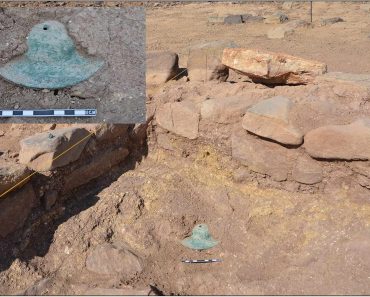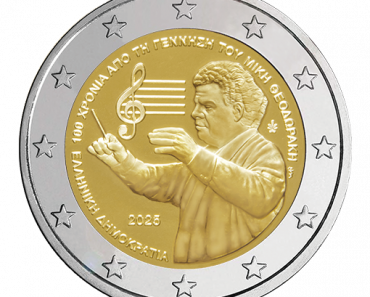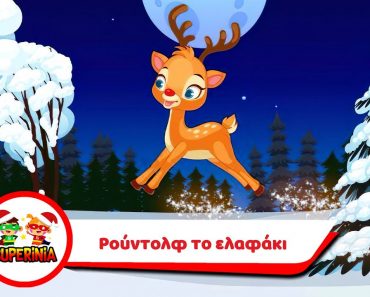For the Tzirkallis siblings—Michalis, Andreas and Artemis—Greek is more than just a language. It is the voice of their grandparents, the stories of their great-grandmother Chrystalla from Cyprus, the melodies of Anna Vissi and Yiannis Ploutarchos playing on the radio, and the taste of flaounes at Easter. It is the sound of the bouzouki, the rhythm of their heritage.
Raised in Australia, they each made a conscious decision to learn Greek as a way to reconnect with their roots. For years, they have been taking Greek lessons and are now preparing for the Greek language proficiency exams.
Despite not attending Greek school as children, they firmly believe: “It is never too late to learn Greek—if you truly want to.”
Through their journey, they hope to inspire other young members of the Greek diaspora who may feel disconnected or believe it is too late to reclaim their heritage.
For the Tzirkallis siblings, language is more than communication—it is a bridge to family, culture, and history.
Michalis: “At first, it was my grandparents’ voices”
Michalis Tzirkallis’ first exposure to Greek came naturally, through the voices of his grandparents and great-grandparents.
“I was very young,” he says to Neos Kosmos, but I remember hearing them speak Greek. That was my first connection to the language.”
Along with his siblings, he decided to take Greek classes to deepen his understanding beyond what he had absorbed from music, family discussions, and trips to Cyprus. “We keep going because it’s incredibly rewarding to be able to speak a second language and connect with people we otherwise couldn’t. And our lessons with Mrs Eleni are truly engaging.”
He never considered giving up—largely because of the shared experience with his siblings.
“Learning with them makes it fun and productive since we are all at a similar level,” he explains.
His biggest challenge? Greek grammar, particularly sentence structure and noun genders. But beyond the struggle, the rewards are profound.
“One phrase I love is ‘synennoisi bouzouki’ (communication is off like an untuned bouzouki)—it perfectly describes the challenges of learning a new language!,” he jokes.
“Learning Greek has brought us closer to our family, especially our older relatives from Cyprus. There’s no longer a language barrier—we can now share stories and traditions.”
Frequent visits to Greece and Cyprus have made him feel more connected to his heritage. “I always admired my mother’s fluency. Now, when we travel, I feel more immersed in our culture and comfortable in conversations.”
For Michalis, Greek traditions are a source of joy. “I love religious celebrations—Easter, Christmas, name days—because they blend faith and tradition.”
His advice for those hesitant to start learning?
“Immerse yourself in traditions and cultural events. Curiosity will naturally lead you to learn the language.”

Andreas: “We are all Greek—No matter where we were born”
For Andreas, it all started with music. “My father only played Greek songs at home when we were kids. That was all we heard.”
In 2015, he bought his first bouzouki, sparking a journey of learning both music and language.
“I wanted to understand the songs my parents played when I was little. That’s why I started learning Greek alongside my studies.”
His passion kept him motivated. “I never considered quitting. Greek is in my blood. Learning the language is part of our culture.”
His biggest challenge? Greek word endings and gender agreement. But he remains undeterred. His favorite words? “Bouzouki and football”—words that carry rhythm and identity.
For Andreas, speaking Greek has deepened his sense of belonging. “Being able to speak Greek brings you closer to the country and its history. It’s a part of our culture.”
His grandparents are proud. “They are happy that we continue the tradition and speak Greek—especially knowing that most in our generation don’t. They speak to us, and we do our best to respond.”
Cyprus is a major part of his life. He visits every year with his family and cherishes the stories of his late grandmother, Chrystalla.
“Her stories about village life and Cyprus’ history opened our eyes. When you arrive there and can speak and understand, it feels like coming home.”
His love for the bouzouki remains strong. He continues to learn classic songs and share his music with others.
“I started a TikTok account (@andreasbouzouki), and so far, I’ve reached 13,000 people worldwide, showcasing my love for Greek music,” Andreas tells Neos Kosmos extending a message to young diaspora Greeks who feel disconnected from their roots.
“Never forget where you come from. Whether you were born in Australia or Greece, we are all Greek.”
His words carry the sincerity of someone who deeply believes in them. For Andreas, language is more than a tool—it is a gateway to an entire world.
“If I could change anything about Greek language education, it would be the approach—less rote memorisation, more comprehension. Having English translations alongside Greek texts would help, especially for those of us who grew up with English as our first language.”
As for the future of Greek in the diaspora, he is optimistic.
“Greek has existed for thousands of years and will continue to exist. It won’t be lost.”
His conviction is unwavering.
More than anything, he dreams of passing the language and his love for Greek culture to his future children.
“I want my family to speak Greek one day. And to love the language as much as I do,” he says.

Artemis: “Greek is more than a language—it’s home”
If language has a soul, then for Artemis, it is filled with voices. The voices of her grandmother Miranda and great-grandmother Eleni, who cared for her while her parents worked.
“I learned to speak Greek at a very young age,” she tells Neos Kosmos. “Unfortunately, when I started primary school, I forgot it.”
But when language is tied to love, it is never lost forever. It stays within you, waiting to be remembered.
The spark reignited with thoughts of her great-grandmother Chrystalla, who lived in Cyprus.
“We wanted to be able to talk to her, especially about her life before the war of 1974,” she explains.
The need for communication became a need for reconnection. And so, she and her siblings found themselves back in the language—this time, with awareness.
There were challenges along the way, especially with grammar and sentence structure, but something stronger prevailed: their love for the culture. And a childhood tenderness that never faded.
“We grew up listening to the music of Anna Vissi and Giannis Ploutarchos. We felt the need to stay connected to our roots,” she muses.
For Artemis, the Greek language is more than just a means of communication. It is a space. A refuge.
“For me, Greek is not just a language—it is home. It is the voice of my family, my culture, and my history.”
The weekly Greek lessons with her siblings are now much more than just education. They are companionship.
“Every Saturday, we laugh, we learn, we grow closer,” she says, adding that “These lessons have also helped us connect more with our grandparents, who speak Greek.”
Traveling to Greece and Cyprus has always been an integral part of their lives. “Every year, we would go to Cyprus to visit our great-grandmother, who lived until the age of 96. Recently, I was in Athens for Christmas and noticed how much my Greek had improved. It was wonderful to be able to speak more fluently.”
For Artemis, tradition is also kept alive through flavours.
Her favourite moment? Making flaounes at Easter.
“Every year, I eagerly wait for my grandmothers, Miranda and Galatia, to come over so we can make them together.”
Today, she wants to share her own message with those who feel they have lost the opportunity to learn Greek:
“Even if you didn’t attend a Greek school as a child, it is never too late to learn! It’s more than just a language—it’s a way to connect with family, history, and culture.”
The thread connecting generations, places and hearts
In the voices of Michalis, Andreas, and Artemis, something deeper than the effort to learn a “difficult” language is reflected. It is the need to remember. To connect. To keep alive a part of themselves that might otherwise be lost between two homelands, two languages, and two worlds.
For them, Greek is not just a Saturday lesson. It is music, taste, prayer, family. It is the smile on their grandfather’s face when they respond to him in Greek. It is a key that unlocks memories. It is the thread that connects them to the past—and to the future.
And in this journey, there is one person who plays a pivotal role: their teacher, Eleni Dimitriou. With her love for the language and culture, her lessons filled with music, laughter, and encouragement, she has managed to turn knowledge into experience and bring the language to life.
With every word they speak, with every effort to get a grammatical gender right or form a sentence correctly, the three siblings remind us that language lives as long as we speak it.
And it is never too late to bring it back into our lives. To come home.






